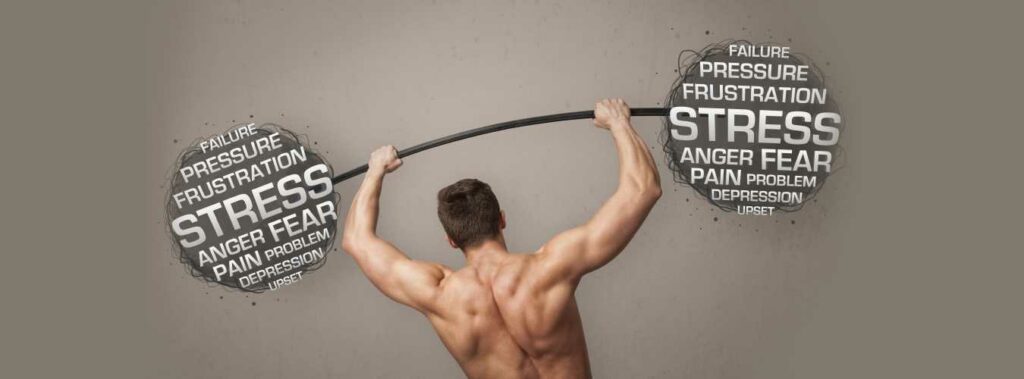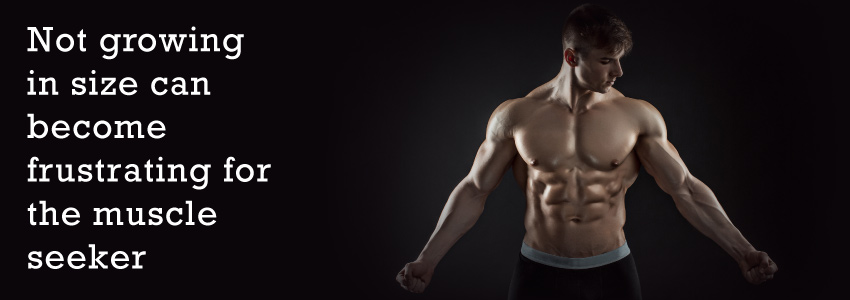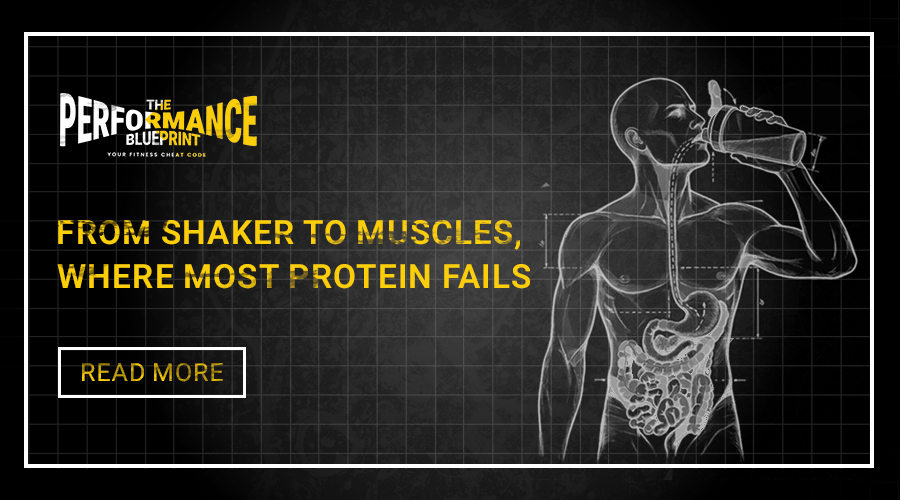Top 4 Ways to Move Out of Muscle Building Plateau
25 April 2023
Are you stuck in a muscle building plateau? Read the top 4 ways to move out of the muscle building plateau.
Like most things in life, the muscle builder also encounters beginner’s luck. Initially, muscles show at a rapid pace and then the dreaded plateau sets in. No amount of lifting, eating right seems to change the shape and swell of the muscles. This is called hitting the muscle building plateau, the dreaded word for any fitness enthusiast and muscle seeker.
Exercise physiologists have discovered that long-term training causes cumulative fatigue, leading to spikes in enzymes, which causes inflammation and muscle damage. A sure-shot way to substandard performance is to jump into a workout before you shed the built up fatigue.

WHAT MAKES MUSCLES GROW
Each time, you lift heavy or do a strenuous exercise you injure your muscle tissues. Your muscles grow bigger in response to the inflicted injury as it preps itself for the next assault. This brings us to the principle of Progressive Overload and its role in building bigger and stronger muscles.
WHAT IS PROGRESSIVE OVERLOAD
Progressive overload implies gradually overloading the muscles with heavier weights so that your muscles grow bigger and stronger over a period of time and you become different from that guy who looks the same week after week, month after month and year after year. Progressive Overload is the key to making adaptive and progressive changes in the body to any form of external stress.
So, if you are looking for a leaner and more muscular build you would train the body with comparatively heavier weights (heavy in comparison for your own self).
If you do 6-10 reps of a barbell curl with 10kg weight on day 1, on day 2 of your training, you should increase the weight marginally.
A successful Example of Progressive Overload is –
With a lower weight selection, you would make slower progress, but you will make longer and consistent progress since the body will be able to handle the stresses and adapt to them in time.
| Training Days | Weight |
| Day 1 | 10kg |
| Day 2 | 12.5kg |
| Day 3 | 15kg |
| Day 48-50 | Squatting 100kg and more |
With a lower weight selection, you would make slower progress, but you will make longer and consistent progress since the body will be able to handle the stresses and adapt to them in time.
TOP 4 WAYS TO BEAT MUSCLE BUILDING PLATEAU
When you hit a plateau, you experience a loss in the muscle strength and you are no longer able to match your previous lifts. Your ability to get a pump also takes a dip. There is a lack of motivation while working out and above all, you do not attain any progress, at least in the last 2 workouts. Your behaviour is irritable to say the least and you certainly lack that edge, which you had at the beginning of your workout. There is no progress in your muscle gain in at least 2 weeks.
REST & RECOVERY
Let’ s do a quiz. When do you grow muscles? During rest or during a workout. Most people will think that you build muscle during a workout. Actually, you build it during rest. Each time you work out, it causes microscopic tears in the muscles, but when you rest and refuel properly, your body will build new tissue in its place. It is very much required that you give your body sufficient time to repair itself after a workout, or your fitness status is not going to improve. In the absence of proper recovery, you are going to hit a plateau or your fitness status will decline.
For speedy recovery, you need to rest after the workout, eat a healthy and sleep for at least 7-8 hours in a night.
BENEFITS OF A RECOVERY WEEK
Moreover, you need to plan recovery days and weeks into your training program. Scheduling a week off allows you to return back stronger to your workout. It is common for endurance athletes, to take a week off after four to eight weeks of gruelling gym sessions. Similarly, runners have a down week after a marathon, so that their body can recover and they are focused enough when they go back to their sport.
_0.jpg)
POST FAILURE HEAVY OVERLOADING METHOD
In simple words post failure heavy overloading means lifting heavier weights than before but for fewer reps.
Now, if for the last two weeks you are not able to lift heavier than 90kg in your barbell press, in your final set, you need to rack the weight up, rest for 20-25 seconds and go for it. Push yourself through the weight as many times as possible, until you reach failure.
Try this technique for a few times, and then move to your previous workout regime, but with a difference and a greater weight load.
DROP SETS
In drop sets, you reduce the weight initially and then continue for more reps, until you reach the stage of failure. By stripping down the weight, you recruit different muscle fibers which allow your muscles to achieve growth that could not be achieved by sticking with the same weight. The two techniques of drop sets are:
The Two Techniques of Drop Sets are:
RUNNING THE RACK
With dumbbells, the technique is called running the rack, where the lifter picks lighter dumbbells off the rack and performs as many reps as possible.
| Set 1 | Choose a weight in which you would fail at | 4-6 reps |
| Set 2 | Reduce weight by 2kg | 8-10 reps |
| Set 3 | Reduce weight by 2kg | 10-12 reps |
| Set 4 | Reduce weight by 2kg | 12-15 reps |
| Set 5 | Reduce weight by 2-4 kg | 15-20 reps |
PLATE STRIPPING
In plate stripping, your fitness partner or spot strip plates from your barbell, until you can no longer perform reps with the given weight. Then, he strips one more plate. The spot or the fitness partner will strip the weights from each side of the bar, up to two or three times, until you reach the position of complete muscular exhaustion.
Sample Routine Using Plate Stripping with the Flat Bench Press
| Set 1 | Choose a weight in which you would fail at | 4-6 reps |
| Set 2 | Strip weight by 4kg | 8-10 reps |
| Set 3 | Strip weight by 4 kg | 10-12 reps |
| Set 4 | Strip weight by 4 kg | 12-15 reps |
| Set 5 | Strip weight by 8 kg | 15-20 reps |
Rules: 1st set should be heaviest. No rest in between drops. Ensure training partner strips weights for you.
SUPERSETS
In the superset, you combine two exercises of the same muscle group or opposing muscle groups and you perform these exercises one right after another without any rest in between.
Basically, you perform two sets of two different exercises which form a superset. The benefit of supersets is an increase in blood flow to the working muscle between sets by stressing another proximal muscle group.
Examples of supersets are chest and back, quads and hamstrings and biceps and triceps.
In a superset, a set of bench press is followed by a set of barbell rows or a set of triceps dips is followed by triceps extension.
Do not apply all of these techniques all at once. Be gradual about the changes. Most importantly, rest and recovery are very important for moving out of muscle growth plateau.
Read Also: Building Muscles and a Lifestyle









 100% Safe & Secure payments:
100% Safe & Secure payments:




